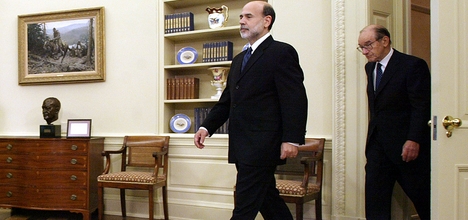For Israel, a reckoning

Israeli soldiers prepare white phosphorus 155mm artillery shells (light green) as troops
keep position on the Israel-Gaza border. Photograph: Jack Guez/AFP/Getty Images
A new global movement is challenging Israel's violations of international law with the same strategies that were used against apartheid.
The farce of the climate summit in Copenhagen affirmed a world war waged by the rich against most of humanity. It also illuminated a resistance growing perhaps as never before: an internationalism linking justice for the planet with universal human rights, and criminal justice for those who invade and dispossess with impunity. And the best news comes from Palestine.
The Palestinians' resistance to the theft of their country reached a critical moment in 2001 when a UN conference on racism in Durban, South Africa, identified Israel as an apartheid state. To Nelson Mandela, justice for the Palestinians is "the greatest moral issue of the age". The Palestinian civil society call for boycott, disinvestment and sanctions (BDS) was issued on 9 July 2005, in effect reconvening the great, non-violent movement that swept the world and brought the scaffolding of African apartheid crashing down.
“Through decades of occupation and dispossession," wrote Mustafa Barghouti, a wise voice of Palestinian politics, "90 per cent of the Palestinian struggle has been non-violent . . . A new generation of Palestinian leaders [now speaks] to the world precisely as Martin Luther King did. The same world that rejects all use of Palestinian violence, even clear self-defence, surely ought not begrudge us the non-violence employed by men such as King and Gandhi."


























